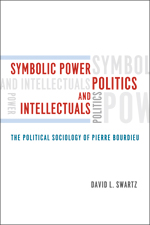Call for papers for a special issue on:
POLITICAL PARTIES: THEORETICAL APPROACHES, COMPARISONS AND CASE STUDIES
Guest Editors:
Francesco Raniolo, Università della Calabria, francesco.raniolo@unical.it
Marco Damiani, Università di Perugia, marco.damiani@katamail.com
Lorenzo Viviani, Università di Pisa, lorenzo.viviani@unipi.it
The crisis of political parties in contemporary societies and democracies is composed of different points of views, that require a joint effort for social and political science to try to understand the changing relationship between citizens and parties. Compared to the political mass models, which are typical of the second half of the twentieth century, parties undergo deep processes of transformation. The beginning of a critical season for the traditional forms of political organization goes back to those years; and this critical season can be configured as ideological, organizational and institutional. The main indicators of the crisis are, mainly, due to: i) an increase of the distance between the democratic institutions and the citizens-voters, ii) a decrease of the number of activists and members of political parties, iii) a constant decrease of the political and electoral participation at all levels of government. On the other hand, between the twentieth and twenty-first century, the political parties has strengthened the structure of their political organization and the weight of their parliamentary activities within the institutions, becoming more and more «state-centered parties», characterized by the progressive reduction of the forms of territorial settlement and the growth of the importance of central organisms and the representatives of the assemblies, especially those elected in national parliaments. This results in significant changes of the organizational model and their political functions. In the face of these changes, will the parties still remain a key player for the functioning of contemporary democracy?
The branch of research the call deals with the analysis on how the parties, which the public appointment made strong but are frail in credit, relate with a “re-opened” civil society, that is virtually the right place where social links can grow again and the political requests can find a voice. The aim of this special issue is to consider the planning, ideological, strategic changes of the parties and their crisis as well as to rebuild their ability in giving life to a new networking role. The ideological block and the colonization strategies towards institution and society, and the “linking” strategies towards the varied realities of the public and political domain go alongside. For these parties, the selection of the political class takes place via a reciprocal contamination among the various members of the network, where the personalization of politics and leadership becomes a relevant aspect in planning the consent and developing the political identities. It is not, therefore, a simple confrontation between the epitaph and the revival of the parties. The fact concerns, once more and as it has always been in the history of political parties, the link with the social changing, looking to the behavior of a political class, which has the task of understanding and, at the same time, addressing this change itself. It is a many-sided link, grounding a net able to create a new link between institution and society, following those patterns of identity and organization that can express new contents, importance and trust towards the mover of the political representation.
In this regard, we welcome in particular:
– political parties
– electoral studies
– leadership, personalization and presidentialisation of politics
– organizational models and membership
– internal democracy, primaries
– political communication and electoral campaigns
– political parties, lobbies, other political organizations
– parties, institutions and policies
– political parties and foreign policy
– populism and challenges to democracy
– political parties in non-democratic regimes
– political system and case studies
Peer Review Policy: Partecipazione e Conflitto adheres to a standard double-blind peer review process. Each article submitted will be evaluated by Editors and Editorial Board. If congruent with the object of the call for papers, it will be reviewed by at least two anonymous scholars.
Submission procedure:
Articles, written in English, will be submitted to a peer review process according to the following schedule:
– Submission of long abstracts (about 1,000 words): 30 May 2014
– Selection of long abstracts: 15 June 2014
– Submission of articles: 15 September 2014
– Provision of peer review feedback: 15 November 2014
– Submission of revised papers: 30 December 2014
– Publication of the issue: 15 March 2015
Articles should be no longer than 10,000 words, including notes and references. A maximum of 10 articles will be published.
Please refer to the editorial guidelines available at https://siba-ese.unisalento.it/index.php/paco/about/submissions#onlineSubmissions
Please address any queries to one of the three guest Editors.

